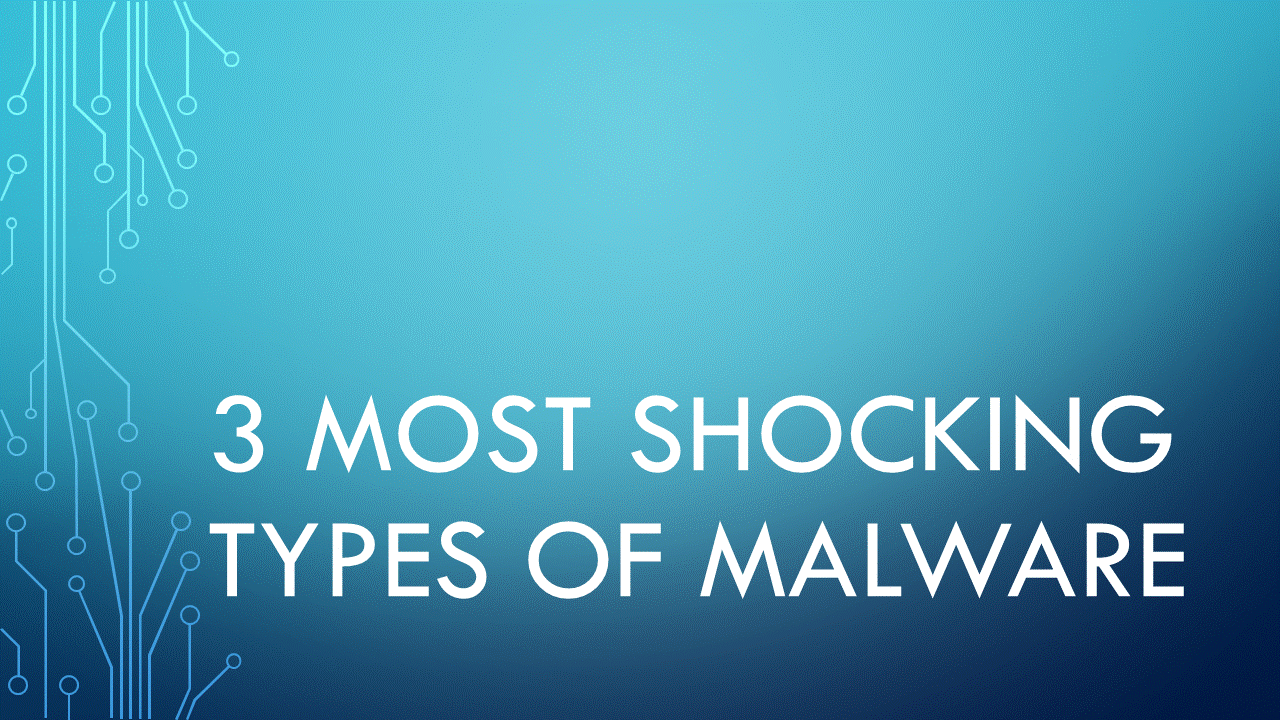3 Shocking Types of Malwares

Malware is a broader term used in the computer field for most unwanted malicious software. This software’ may get installed onto your computers with or without your permission and can harm your computer system or steal your confidential information in some way.
We will discuss few terminologies used in the computer field to describe this malicious malware:
Spyware:
Spyware is a software program that intends to gather private and confidential data available on your computer secretly and transfer this data to other computers (Attacker) over the network which has malicious intent. Hackers infect your computer by feeding it with spyware by tricking users with different methods. Most commonly you get infected when you are downloading freeware (third party downloads) attached with spyware. Hackers can also exploit user interaction with legitimate applications or while surfing through adult material on websites. Once your computer gets infected with spyware your online identity is at high risk and the performance of your device can be compromised as well.
Trojan Horse:
Trojan horse viruses are known as experts in disguise. They can fool your computers into believing them as legitimate programs and can easily pass through firewalls. This happens because the malicious code is sitting inside data files which looks harmless to computers. Once Trojan Horse gets itself installed onto a computer, it releases payloads of malware such as keyloggers and spyware onto that computer system. This means the attackers can gain access to your browsing history, passwords, and other confidential information. Trojan horses as also bundled up with “Adware” frequently and can have worms that attempt to spread themselves using your contact list. Trojans can also allow your computers to be remotely accessed by cyber-crooks.
Bots:
The bot has been derived from “Robot” and they are automated scripts or programs built by human programmers to
The bot is derived from the dictionary word “Robot.” Bots are automated scripts or programs built by human programmers to perform tasks on command over the web. Malicious bots on the internet can gain control of computers infected with bots and these computers are also sometimes referred to as Zombies. Hackers can take control of multiple computers using malicious bots at the same time and use these computer networks to perform malicious activities at a large scale such as launching Distributed Denial of Service (DDoS) attacks. These types of infected computers networks are known as “Botnets.”
Software engineers design bot automated scripts for simple and repetitive tasks such as watching and re-watching a YouTube video to increase the view count. Whereas complicated bot scripts are known as web spiders and web crawlers which can perform bigger automated tasks such as collecting email addresses from the internet. Such web spiders perform this task at a faster rate than humans as they crawl the websites harvest email addresses for spammers to send spam information. Google also uses web spiders which have an extraordinarily complex algorithm for collecting information from web pages to help their viewers see the relevant content to their keyword search. Bots are getting smarter as the technology in text recognition is improving every day. Chat room bots can keep an eye on swearing words used by a particular user and advice users to stay away from using them or they can automatically respond on a website to a user query in a chatbox. Social bots are increasingly becoming a security concern for technology researchers and online security companies.
Other Related Posts:
- Everything you wanted to know on encryption and BitLocker!
- 7 ways the public can spy on your IP Address
- Everything you want to know about your Internal and External IP Address
- What is BYOD? Why is it trending among organizations around the world?
References
idthefthq.com. (n.d.). Retrieved from youtube.com: https://www.youtube.com/watch?v=jkoMYFOkozw
Lab, T. P. (n.d.). https://www.youtube.com/watch?v=UQLo399K3PE. Retrieved from youtube.com
Techterms. (n.d.). https://techterms.com/definition/bot. Retrieved from www.techterms.com: https://techterms.com/definition/bot
